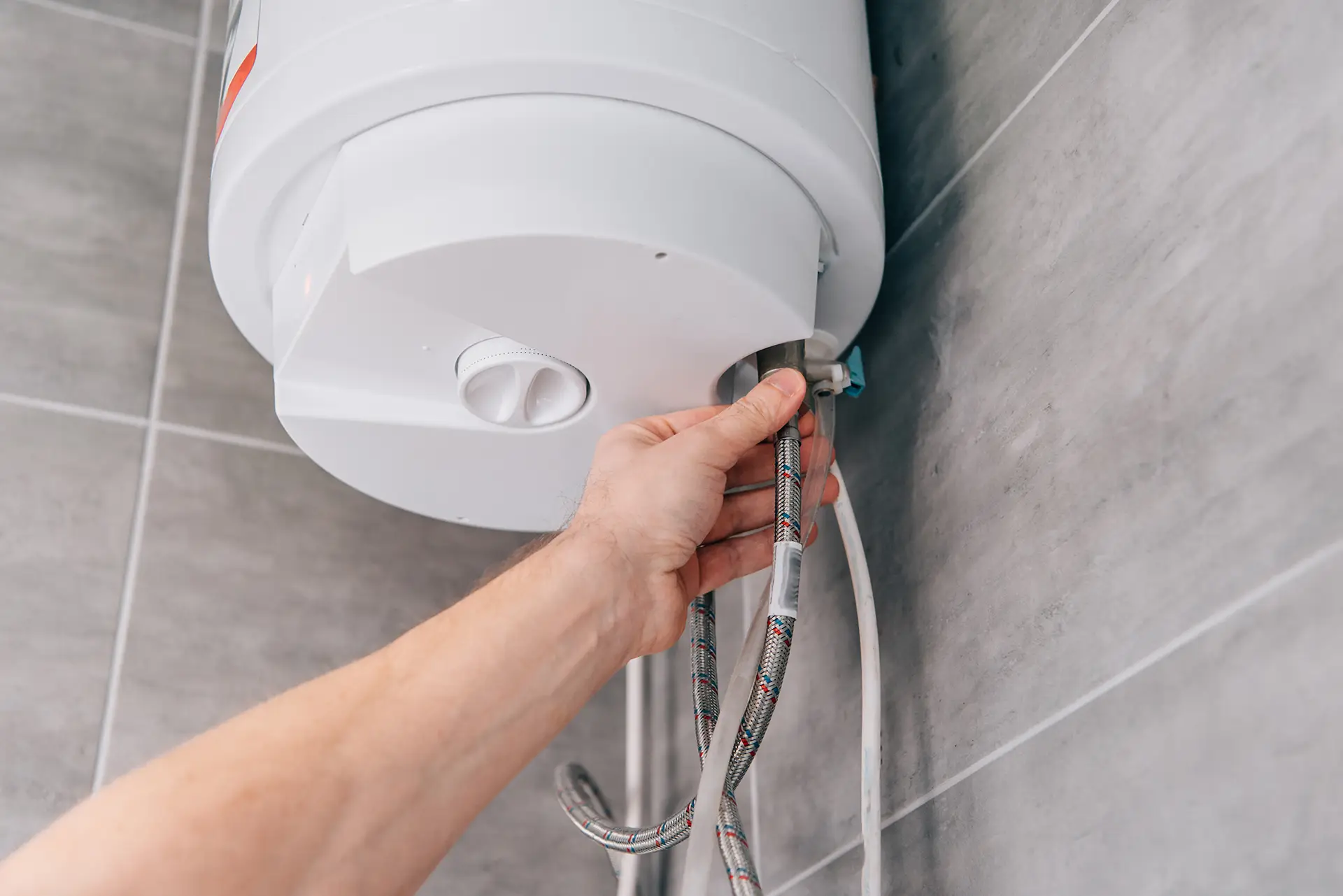What to Know Before Installing a Hot Water Tank

Every home uses hot water for various reasons, such as cooking, drinking, bathing, and washing dishes. It’s one of those everyday comforts you don’t think much about until it’s not there. While there are a few different ways to heat water, most homes rely on water heaters to keep things running smoothly.
Hot water tanks are a popular choice because they’re efficient, reliable, and can keep up with a family’s daily needs. If you’re considering installing one, you’re in good company — it’s a smart investment for comfort and convenience. But before you schedule that installation, it’s important to know what to know before installing a hot water tank. Getting familiar with the basics can help you make the right choice for your home and avoid unnecessary surprises down the road.
How a Hot Water Storage Tank Works
Knowing how a hot water storage tank works gives you a leg up. Basically, cold water comes in, gets heated by a gas burner or an electric heating element, and then is stored until someone turns on a tap. The hot water rises to the top, so it’s ready to flow. It’s a simple system, but one that works best with proper maintenance like flushing out sediment and keeping an eye on the thermostat.
Hot Water Tanks Provide a Consistent Supply for Your Needs
When you have a hot water tank, you do not need to worry about additional water heating systems. As long as your hot water tank is functioning properly, your supply will be consistent. This will help you save a lot of money on heating expenses, too. Instead of heating water on the fly, you’ll have hot water standing by and ready for use.
Always Consider the Heating Capacity of the System
Before you decide to get a hot water tank installation in Buffalo, NY, you have to consider some things. How many people will be using it? Will the hot water be used in different locations simultaneously?
If this is the case, then you have to find the hot water tank that will meet those needs. This will help you determine if you need an additional tank to make sure it works well for everybody.
Determining Your Household’s Hot Water Needs
Factors like the number of bathrooms, frequency of laundry, and dishwasher use play a role. A family of four typically requires a tank with a capacity of 50 to 60 gallons. Evaluating your daily routines will be necessary for choosing the appropriate size and type of tank to meet your needs.
Consider the Installation Location
The location of your hot water tank affects both its performance and safety. Install the tank in an area with adequate space and ventilation, such as a basement or utility room. Ensure the floor can support the tank’s weight, especially when filled with water. Proper placement also facilitates easier maintenance and reduces the risk of water damage to living spaces.
Plan for Proper Ventilation and Drainage
Proper ventilation is crucial, especially for gas water heaters, to prevent the buildup of harmful gases like carbon monoxide. You’ll want to make sure that flue pipes are correctly installed and vented to the outside. Additionally, plan for adequate drainage to handle potential leaks or overflows. Installing a drain pan beneath the tank and connecting it to a floor drain can help mitigate water damage.
Don’t Forget the Regular Maintenance Check-Ups
As with any system, maintenance is a must. Without it, you may encounter problems such as inconsistent water temperatures.
For example, the water may suddenly become too hot for use. While this may not be a problem for some, it poses a hazard for those with small kids in the house. They may use it and accidentally burn themselves.
So make sure to keep your hot water tank maintained to avoid these kinds of incidents. As a bonus, you’ll also help prevent any costly repairs from being needed.
What to Do After Installing a New Hot Water Tank
After installation, it’s important to take specific steps to ensure your hot water tank operates correctly:
- Fill the Tank: Before turning on the power or gas, fill the tank completely to prevent damage to heating elements.
- Check for Leaks: Inspect all connections and valves for any signs of water leakage.
- Set the Thermostat: Adjust the temperature to around 120°F to balance energy efficiency and safety.
- Monitor Performance: Keep an eye on the tank’s operation during the first few days to catch any issues early.
Understanding what to do after installing a new hot water tank helps maintain its efficiency and longevity.
The Bottom Line
Knowing what to know before installing a hot water tank helps you avoid surprises and make choices that fit your home and family. Key steps include picking the right size, deciding between gas and electric, following building codes, and making sure the setup has proper ventilation and drainage.
For households with higher hot water use, adding a hot water storage tank that’s properly sized and set up for your home can give you the extra supply you need without sacrificing performance. A thoughtful approach now means fewer headaches later and a more comfortable home overall.
Professional Installation Makes a Big Difference
Hot water tanks are more than just plug-and-play appliances. If they’re not installed correctly, you could end up dealing with leaks, poor water pressure, or even damage to your home from water or gas issues. A misaligned flue or poorly connected pressure relief valve can turn into a real safety concern.
That’s why working with experienced professionals matters. Skilled plumbers make sure the tank is installed to meet local codes, the ventilation is handled properly, and all connections are secure. If you’re in the area, Zenner & Ritter offers top-quality plumbing services in Buffalo, NY, and can help get your system up and running the right way from the start.
Find the Right Contractors to Do the Job
If you want to know more about hot water tank installation in Buffalo, NY, there’s no better option than getting in touch with a local contractor. Here at Zenner & Ritter, our skilled and certified technicians always make sure to do any installation properly and efficiently.
We’re always happy to answer any questions you may have. We make sure that our customers follow general safety tips to help their units stay in shape for years to come.
If you want to know more about our services, call us today at 716-833-2463!
